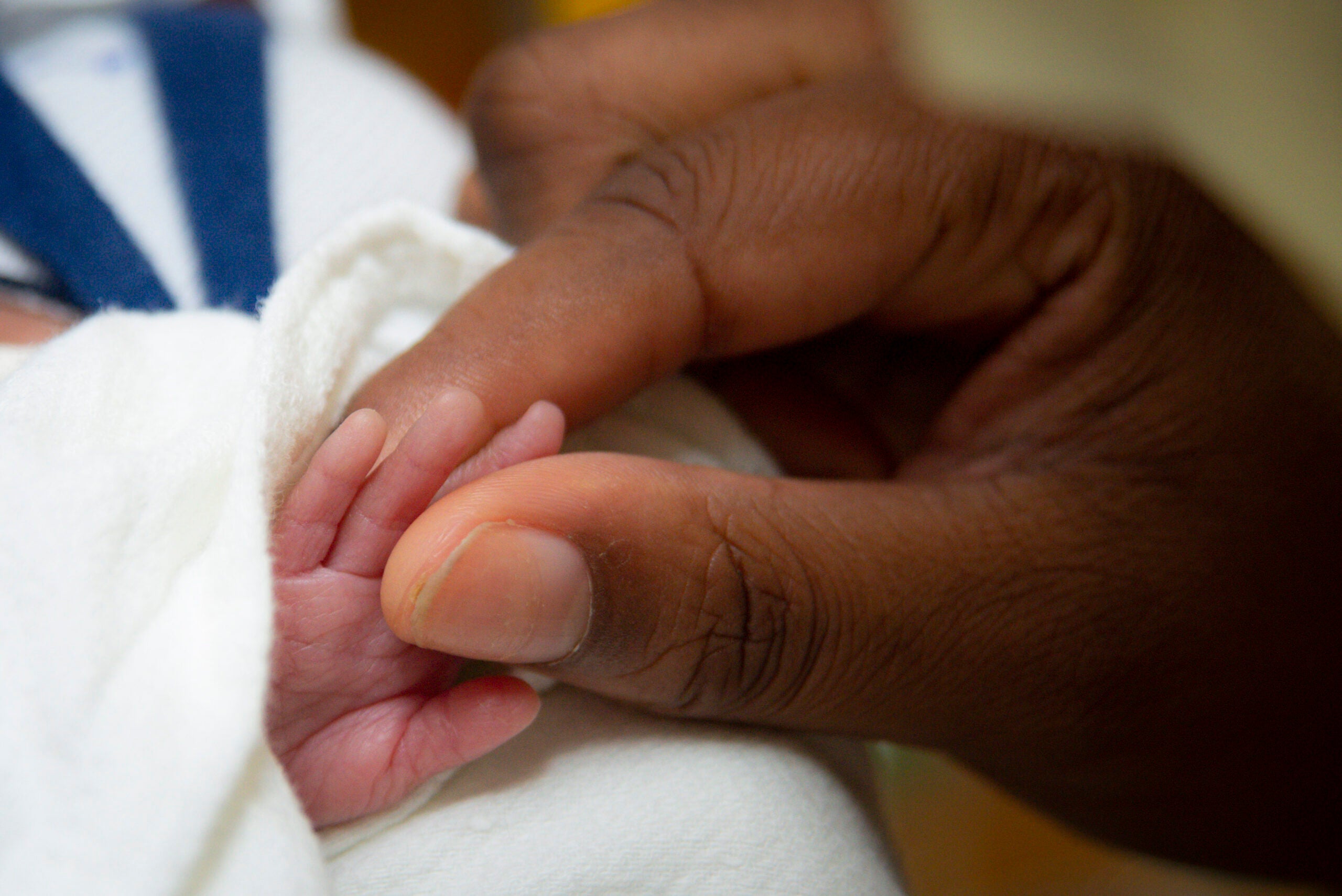What to Expect When Your Premature Baby Is in the NICU: Alexus’ Story
November 17, 2020When your baby is born, you expect your experience to go just like all the parenting books have taught you. You’ll have an easy delivery, followed by a few days resting with your beautiful baby in a comfortable maternity room.
It doesn’t always go that way, however. And that’s where the neonatal intensive care unit comes in.
The neonatal intensive care unit, or NICU, is where babies who are born too early (generally before 37 weeks), as well as babies who need special help (due to a congenital condition, trauma during birth or other issues), spend their early days, weeks, and sometimes months.
In this special place, the clinical team provides neonatal expertise around the clock using the most up-to-date technology — to help even the smallest of premature newborns thrive.
Meet Alexus Facey
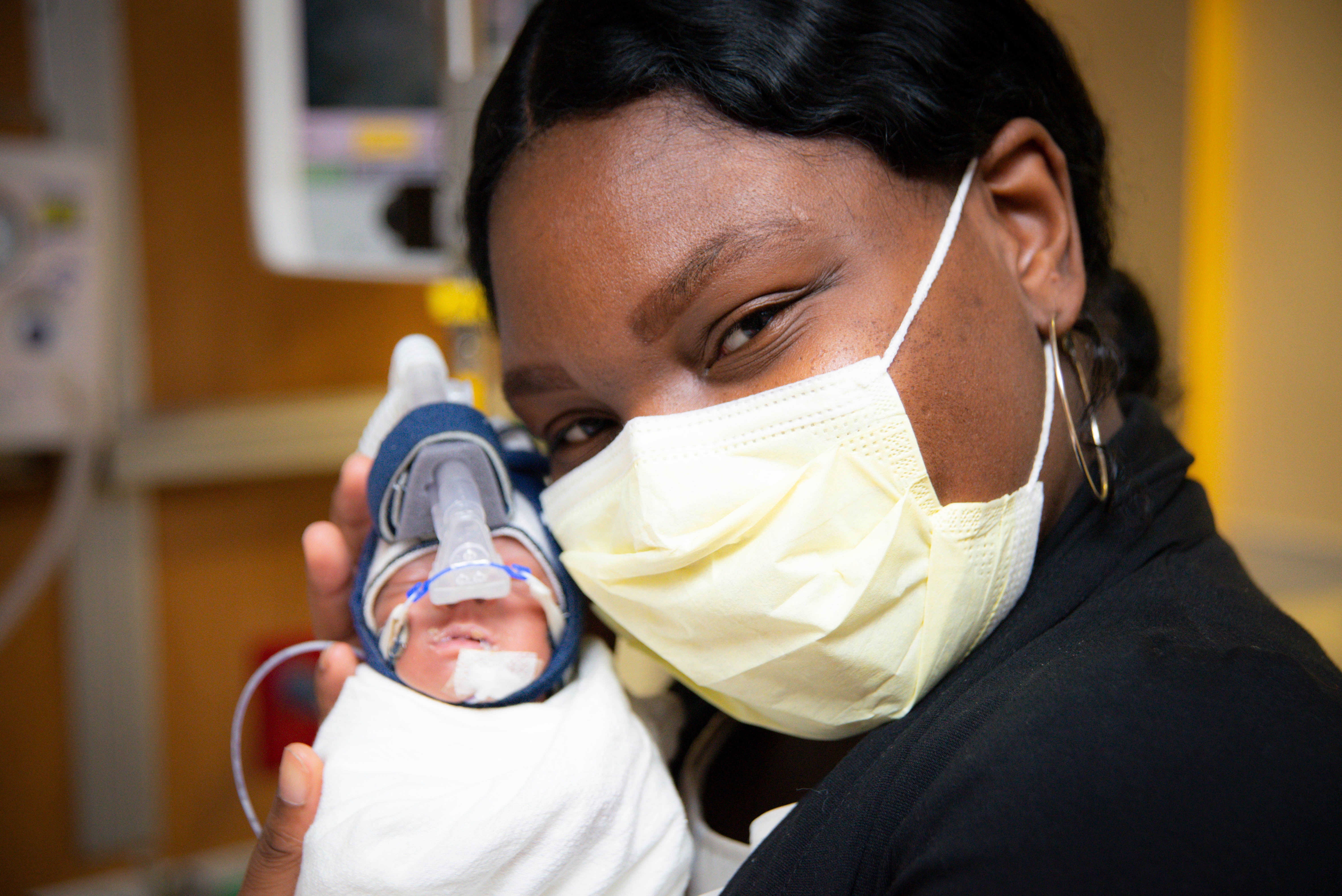
One very special mother has delivered two babies — girls — who have utilized the services of the WakeMed NICU four years apart. Alexus has a condition called cervical insufficiency. Normally, as the cervix softens, it also thins out and opens, so the baby can be delivered vaginally. If the cervix opens or gets very soft too soon, it can lead to early delivery.
Alexus’ daughters Kalea and Korryn were delivered at 24 and 25 weeks in utero — three months early.
Alexus says…
“I was in labor with my first baby for 17 minutes and just six minutes for my youngest. Both were under two pounds. Korryn, whose here now, was born at one pound and 11.3 ounces.”
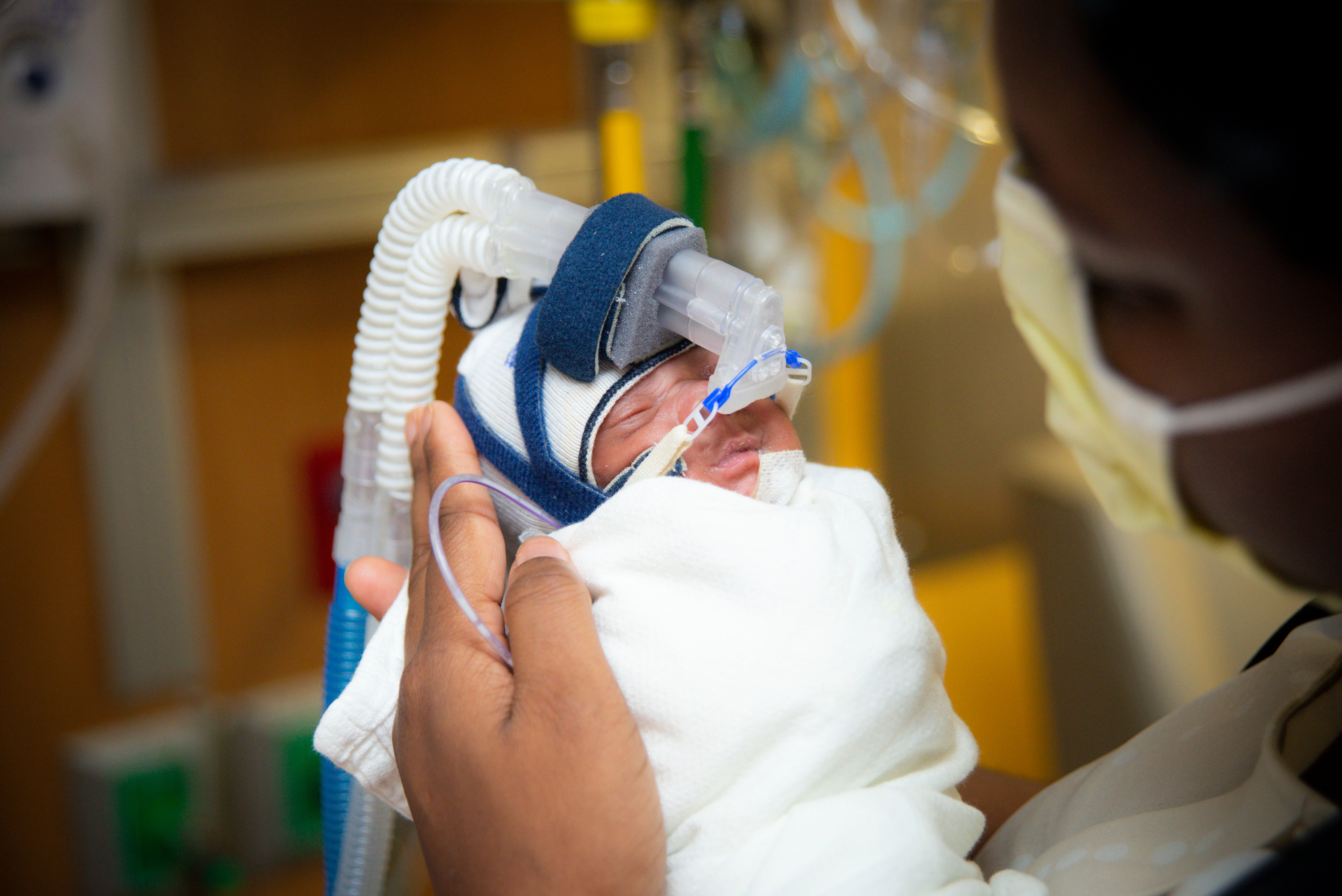
From the Delivery Room to the NICU
The obstetrician may know ahead of time that a baby will need to spend time in the NICU, such as in Alexus’ case. These parents can plan ahead for the experience. In other cases, a quick transfer may need to be made from the delivery room to the NICU. Our neonatal specialists have extensive experience making this transfer as easy and comfortable as possible.
From the moment the baby enters the NICU, WakeMed’s neonatal team is ready to give the tiniest and most fragile babies the support they need. Babies born at 23 or 24 weeks will usually have more intensive needs and care plans than babies born at 36 weeks, but all babies receive the highest level of neonatal care, following our Preemie’s Bill of Rights. Our teams work collaboratively to provide the best family- and patient-centered care available.
Alexus says…
“I only trust WakeMed for my babies. They take such good care of them, so they come home healthy. Today, my oldest is four years old, and they still remember her and celebrate her life.”
What Are Those Beeps and Buzzes?
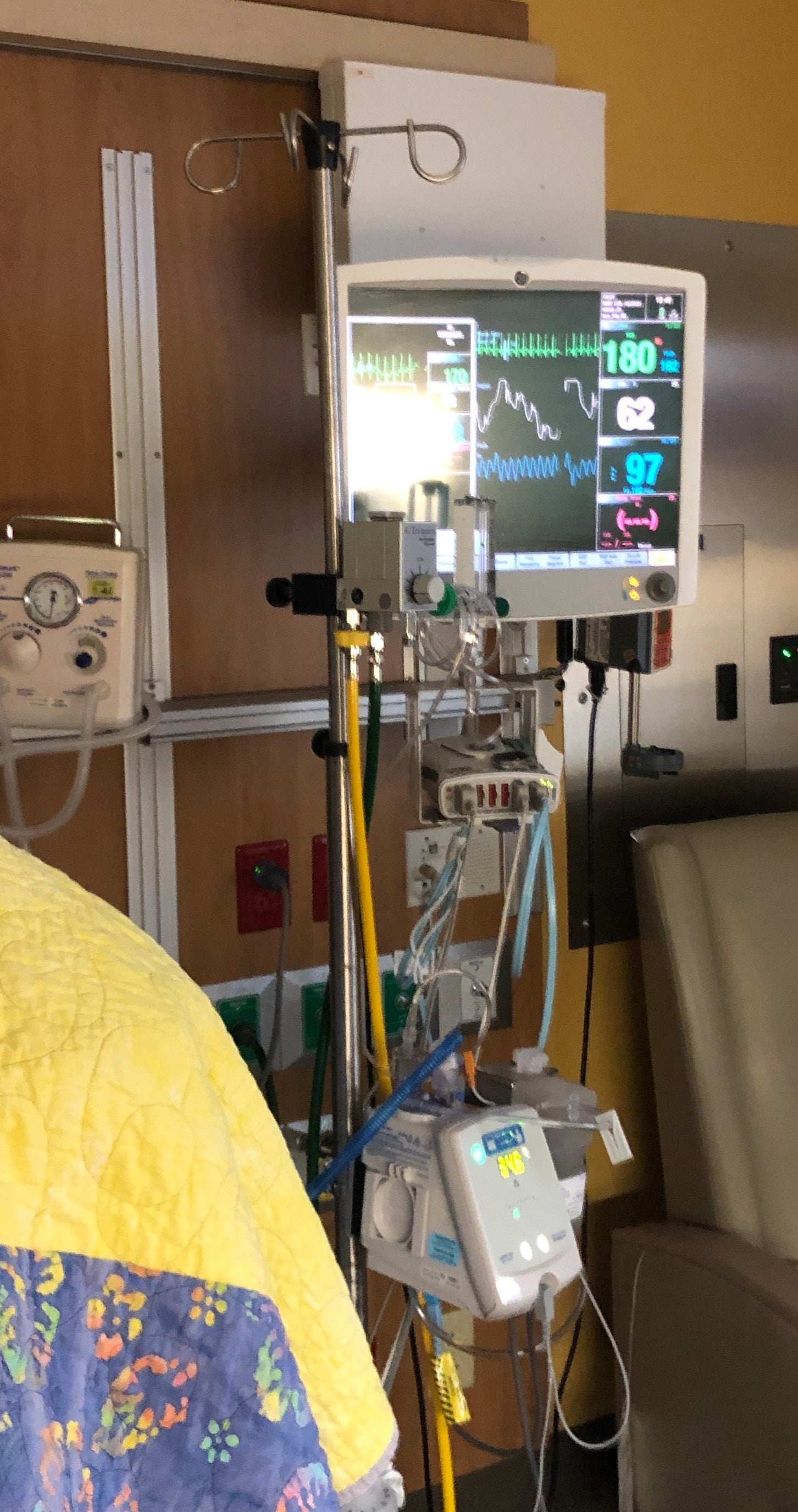
Parents can sometimes be overwhelmed by the many pieces of specialized equipment in the NICU.
Because premature babies haven’t fully developed, they may need to receive supplemental oxygen, and some may need the warmth of an incubator to help them maintain their body temperature.
For most babies in the NICU, monitors are used to monitor blood pressure and heart and breathing rates. Some babies will also need apnea monitors. Others may also need tubes to help them breathe or eat.
Baby Korryn has a mild heart murmur, so she is connected to a cardio respiratory monitor. She also has severe acid reflux, so a monitor is used to determine when she needs elevation.
Alexus says…
“If I could give advice to another parent, I would say don’t worry if a monitor goes off. They are extremely sensitive to make sure the baby feels comfortable and is attended to right away. It’s normal for a premature baby’s oxygen levels to go down sometimes. It’s also pretty common for a premature baby to have a small heart murmur, and many of them heal naturally over time.”
Parents are encouraged to ask any questions they may have about the equipment being used to monitor and help their baby.
Care from a Specialized, Neonatal Team
The WakeMed Raleigh Campus’ highly specialized Level IV NICU (the highest level of neonatal care available) is staffed with full-time neonatal specialists.
Staff members helping NICU babies include not only neonatologists and nurse practitioners, but also pediatric psychologists, child development specialists, speech-language pathologists, registered nurses, social workers and PhD-level physical therapists.
We encourage families to discuss their baby’s care plan with each specialist — each one brings unique expertise to caring for these premature newborns. We use our Patient- and Family-Centered Care Model and recommend families be active in developing their baby’s care plans and providing hands-on care.
The ultimate goal is to bring them home, and it’s a special day whenever a premature infant gets the go-ahead to leave the hospital. Before babies can be released from the NICU, they must be able to breathe on their own, maintain their body temperature and eat enough to gain weight without the help of tubes.
Alexus says…
“For every milestone Korryn meets, they hang a card in the room and also give me beads to make a necklace to remember our time here. I am reminded that we are a little closer to going home every time she meets a milestone. She was supposed to stay until my due date of January 31st, but we might get to leave earlier and be together at home for Christmas.”

A Private and Peaceful Environment
While the work we do can be intense at times, we strive to create a peaceful environment for babies and their families.
As the only single patient room NICU in the Triangle, we allow our families to spend almost unlimited time with their babies in a developmentally appropriate space. (We also have rooms available to care for twins and triplets spending time in the NICU.)
A comfortable chair placed in each room is specifically used to encourage parents to practice kangaroo care, or skin-to-skin care, with their preemies. Kangaroo care has been shown to help parents bond with their NICU babies and to help babies get better faster.
Our single-room model also helps create a more calming environment than might be expected in such a busy hospital setting. And because we recognize how difficult it can be to spend time away from a newborn, we’ve designed the rooms so that one parent is able to comfortably stay overnight.
Alexus says…
“I really don’t think it gets better than WakeMed. Korryn has an incubator where she stays warm, and it’s covered in a pretty quilt. She has a separate one for bathing that’s covered in a handmade quilt that I love. I’ve never come in here and seen Korryn dirty or neglected. Plus, I and Korryn’s dad can be with our baby 24 hours a day, and while I’m here, they make sure I’m happy too. They put me on to interesting TV shows, so I have something to do while I sit with my baby.”
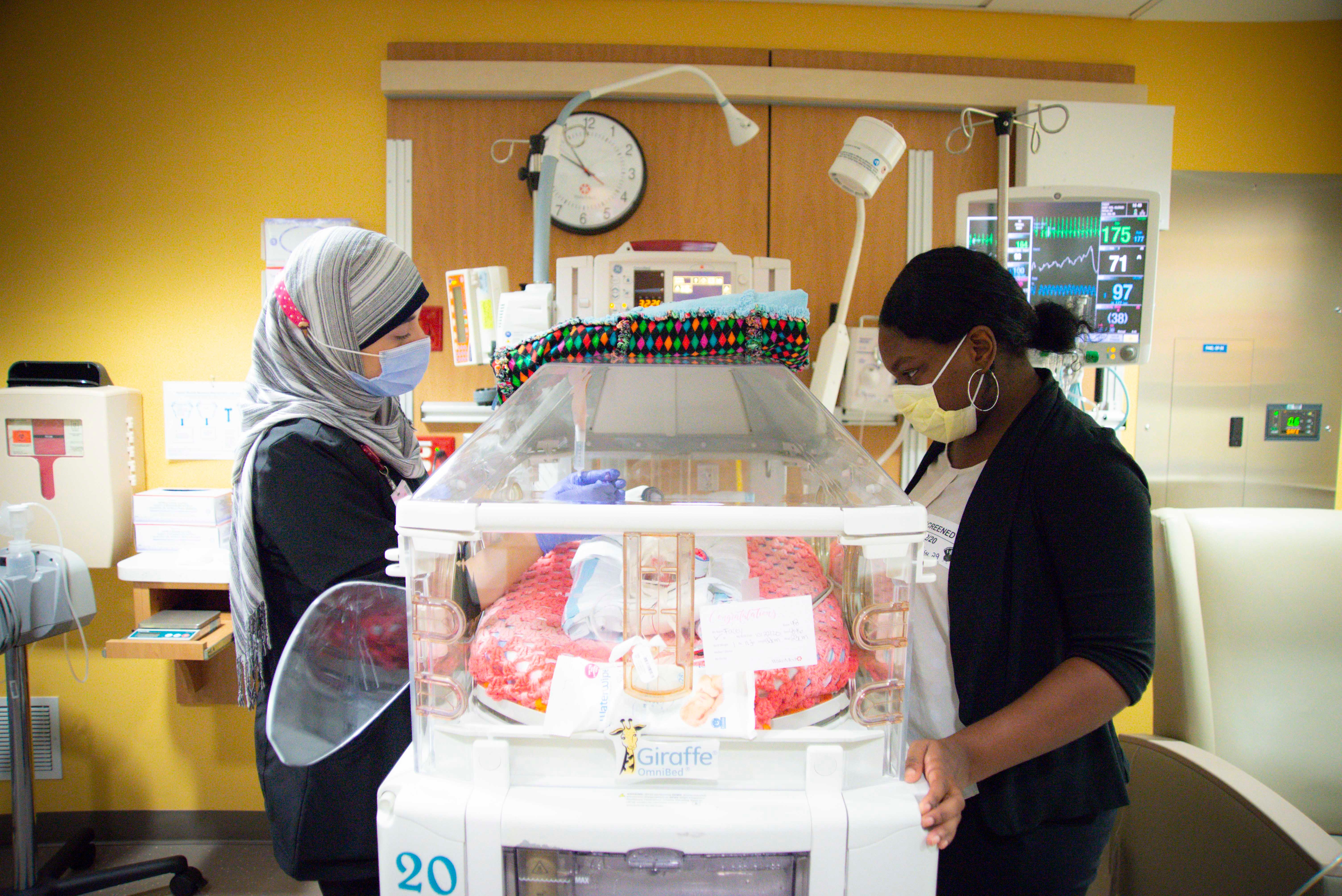
Managing the Challenges of an Early Delivery
The NICU experience is a challenging one — but we try hard to provide as much support as possible.
There are two parent and family lounges. Prior to COVID-19 visitor restrictions, these provided areas for older siblings to play and gave loved ones access to showers and bathrooms. Families often interact in these lounges – sharing stories, encouragement, ideas and expressions of unity.
Alexus says…
“I love the care and attention my family has received so much that I’m thinking of becoming a nurse myself and working in obstetrics to help other moms deliver their babies.”
Life After the NICU
While the NICU’s most immediate purpose is to stabilize premature infants and meet their urgent needs, it also plays a role in planning for the baby’s future needs.
Our lactation consultants help mothers adjust to breastfeeding premature infants (many of whom will have initial difficulties, due to underdevelopment), and we also provide direct access to WakeMed Mother’s Milk bank, a human milk donation program.
The WakeMed NICU team also follows high-risk children for up to three years in an outpatient clinic setting, monitoring the ongoing development of premature and critically ill babies and providing referrals when appropriate.
Sources:
https://www.wakemed.org/care-and-services/womens/support-for-baby/neonatal-intensive-care/
https://www.marchofdimes.org/complications/common-nicu-equipment.aspx
